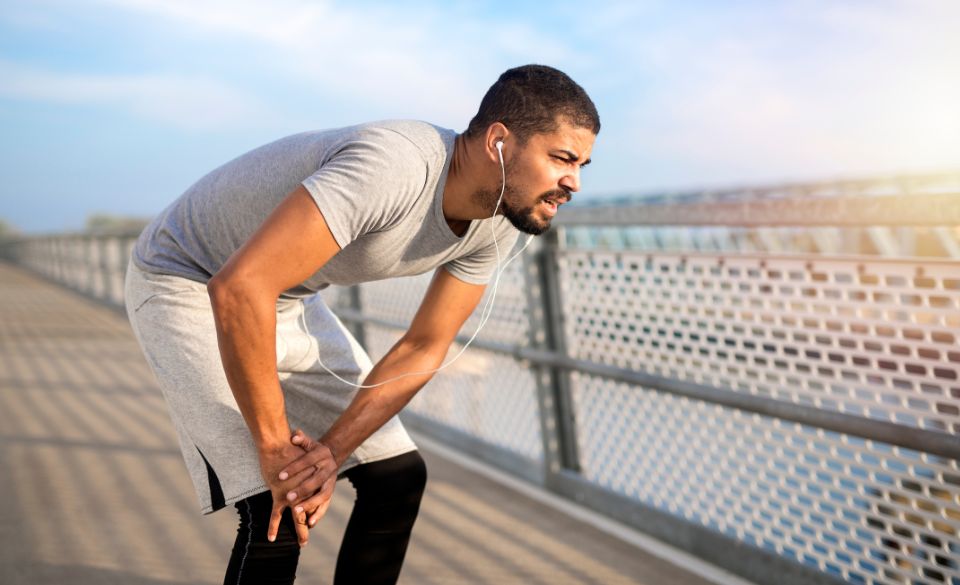
How To Avoid Cramps The Right Way
Cramps can be painful and debilitating, interrupting sleep and activities. They can also be a sign of a more serious underlying issue, so making certain lifestyle changes to reduce the chances of experiencing them may be beneficial.
What Are Cramps?
Cramps are sudden and often painful sensations that typically occur in the muscles of the abdomen, legs, or feet. They are caused by involuntary spasms or contractions of the muscles and can last anywhere from a few seconds to a few minutes.
Most cramps occur as the result of an underlying medical condition or lifestyle factors, such as an electrolyte imbalance, dehydration, vigorous exercise, or poor posture. While cramps can affect any muscle, they are more common in certain locations, such as the calf muscle, foot arch, and thigh.
The medical term for cramps is Myoclonic, which refers to the sudden, surprising, and involuntary spasms of the muscle. As the cramp occurs, the muscle will become tense and hard, followed by a sharp pain. The cramp may worsen with movement or stretching as the muscle spasm intensifies.
Cramps can range from mild to severe and can cause varying levels of discomfort. Some people may find relief by gently stretching the affected muscle until the cramps subside. Massaging the muscle or applying warmth to it can also help to reduce the tension.
It is important to note that cramps can be a sign of an underlying medical condition. If the cramps become frequent or intense, it is best to seek medical attention to determine and treat the cause.
Uncommon causes of cramps include cholera, low levels of vitamin D, hypothyroidism, muscle fatigue, lupus, MS, pelvic inflammation, and fibromyalgia.
In most cases, cramps can be treated with a variety of self-care measures. This includes staying hydrated, performing light stretches before and after exercise, and avoiding intense physical activity or prolonged periods of standing and sitting. If the cramps become severe or last for a prolonged period of time, it is best to seek medical advice.
Causes of Cramps
Cramps are one of the most common and annoying physical problems that many people experience on a regular basis. Although they may seem harmless, they can disrupt normal daily activities and interfere with sleep patterns, which can have a negative impact on overall health and well-being. So, what causes cramps?
The cause of cramps is often unknown, but there are several possible factors involved. In some cases, the cause may be physical or hormonal, such as an imbalance of electrolytes in the body or an imbalance of hormones. It is also possible that the cramps are caused by an underlying medical condition, such as fibromyalgia or multiple sclerosis (MS).
Another common cause of cramps is muscle fatigue or overuse. If activities such as exercise, running, or playing sports put pressure on the muscles, this could lead to cramping. Similarly, poor posture or sleeping in an awkward position can also cause cramping.
Some medications may also cause cramping. Diuretics, hormonal drugs, angiotensin-converting enzyme inhibitors, laxatives, and some herbal remedies may cause cramps.
Dehydration is also a common cause of cramps. When the body is dehydrated, the muscles don’t have enough fluid to work efficiently, which can lead to cramping.
Cramps can also be caused by lifestyle factors, such as a lack of regular exercise, poor nutrition, and smoking. Inadequate vitamin or mineral intake can also be a cause of cramping. For example, a lack of calcium, magnesium, and vitamin B12 can cause muscle cramps.
Finally, emotional stress can also cause cramps. When the body is under extreme stress, the muscles can tense up, leading to cramping.
In most cases, the cause of cramps is unknown and will go away on its own. However, if the cramps become frequent and stop responding to home remedies, it is important to speak to a doctor to rule out any underlying conditions.
How to Prevent Cramps
Are you prone to muscle cramps? They can be extremely uncomfortable and sometimes even disabling, making it difficult to complete everyday tasks. Fortunately, there are things you can do to reduce your chances of getting muscle cramps. Here’s how to prevent cramps:
1. Stay hydrated: Whenever you exercise, you need to replace the fluids you lose. Dehydration can lead to an electrolyte imbalance and can contribute to muscle cramps. Be sure to drink plenty of fluids before, during and after exercise.
2. Eat a balanced diet: Proper nutrition is important for overall health and also helps your body maintain an electrolyte balance. Eating a balanced diet that includes plenty of fruits, vegetables, lean proteins, complex carbs and healthy fats can help you prevent muscle cramps.
3. Get enough rest: Sleep plays an important role in muscle health. Not getting enough sleep can lead to fatigue, which can make cramps more likely. Make sure to get seven to eight hours of sleep each night to help prevent muscle cramps.
4. Warm up and cool down properly: You should always warm up with dynamic stretching before exercise and also cool down with static stretching afterwards. This helps to increase blood flow to your muscles and can help reduce your risk of cramping.
5. Slowly increase intensity: If you are trying a new exercise routine, it’s important to gradually increase the intensity so that your muscles have time to adjust. Jumping into an intense routine too quickly can lead to muscle cramps. Be sure to start slow and gradually increase the intensity over time.
6. Stretch regularly: Developing a regular stretching routine can help to improve your flexibility, range of motion and circulation and can help reduce the chance of developing muscle cramps.
7. Wear the right shoes: Proper footwear is essential for exercise. Wearing shoes that are the right size and that provide the right amount of support and cushioning can help reduce your risk of developing muscle cramps.
With a few simple steps, you can help to reduce your chances of developing muscle cramps. If you do experience muscle cramps, gently stretch and massage the area and apply heat or a cold pack to help relieve the pain. If the cramps persist, you should see your doctor to determine the cause. Follow these tips to stay cramp-free and enjoy a healthy, active lifestyle.
Conclusion
Cramps are usually a sign of a bigger underlying issue, so it is important to be aware of potential causes and take steps to prevent them. Eating a balanced and healthy diet rich in essential minerals, stretching and warming up before physical activity, staying hydrated, and getting adequate rest are all great ways to prevent cramps from ruining your sleep and activities.


